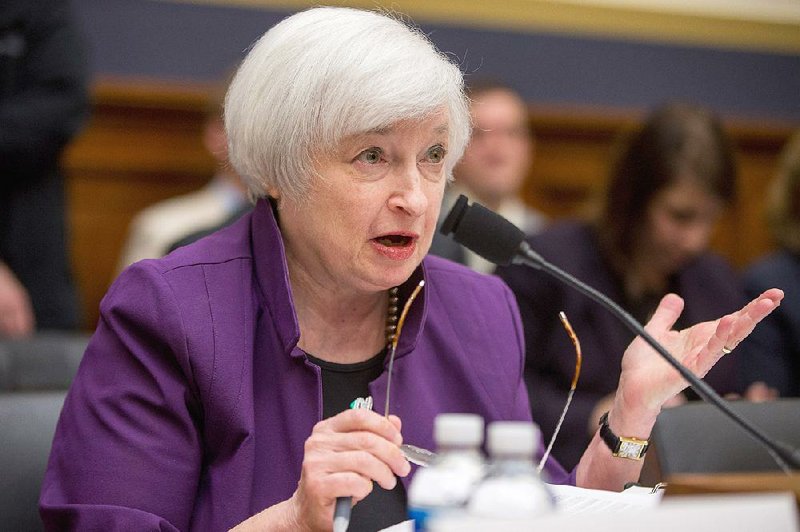WASHINGTON -- Federal Reserve Chairman Janet Yellen said Wednesday that an interest rate increase in December would be a "live possibility" if the economy stays on track.
Yellen described the U.S. economy as "performing well" right now, with solid growth in domestic spending. At their meeting last week, policymakers believed that the threat of global head winds had ebbed, Yellen said.
At its Dec. 15-16 meeting, the Fed will consider raising a key interest rate from a record low near zero if the economy continues to grow at a strong enough pace to keep adding jobs and push annual inflation toward the Fed's 2 percent target, Yellen said.
Yellen stressed that no decision has been made yet and a move in December will depend on how the economy fares between now and then. She reiterated that when the Fed does start raising rates, it will do so on a "very gradual path."
The Federal Open Market Committee in its October statement said it will consider raising interest rates at its "next meeting," citing "solid" rates of household spending and business investment.
"There are pretty good odds that the Fed will hike rates in December as long as employment perks back up and the unemployment rate slips further, which is what we are looking for," said Mark Vitner, a senior economist at Wells Fargo Securities LLC in Charlotte, N.C. "She is trying to keep the Fed's options open in December."
No decision has yet been made on the timing of a rate increase, Yellen cautioned.
Her comments Wednesday came as part of testimony to a House committee on banking supervision and regulation.
In her opening remarks, Yellen said the country's largest financial institutions are still falling short of managing the types of risks that led to the 2008 financial crisis. While Yellen acknowledged progress in making the financial system more resilient to shocks, she expressed concerns about the "substantial compliance and risk-management issues" at the institutions.
"Compliance breakdowns in recent years have undermined confidence in the [banks'] risk management and controls and could have implications for financial stability, given the firms' size, complexity and interconnectedness," Yellen said.
The group includes the eight largest banks in the United States, a number of major foreign banks operating in the United States and several large institutions that have been judged systemically important.
Republicans on the House committee have been critical of many of the regulatory changes the Fed is undertaking to implement the 2010 Dodd-Frank Act.
Committee Chairman Jeb Hensarling, R-Texas, criticized the Fed for failing to provide enough details about the annual stress tests it conducts on the biggest banks to ensure they can withstand a severe financial downturn.
He told Yellen he had great concern about "how opaque and nontransparent" the stress tests are.
Yellen said the Fed tries to provide banks detailed information about the methodologies it is using to structure the tests each year.
The Fed's overriding goal is to make sure that it has sufficiently addressed the kind of problems that led to the 2008 crisis, the worst financial crisis in the United States in seven decades, Yellen said.
"We have made changes in our supervision that now allow us to supervise large financial institutions on a more coordinated, forward-looking basis," Yellen said.
Information for this article was contributed by Martin Crutsinger and Marcy Gordon of The Associated Press and by Craig Torres and Christopher Condon of Bloomberg News.
Business on 11/05/2015
